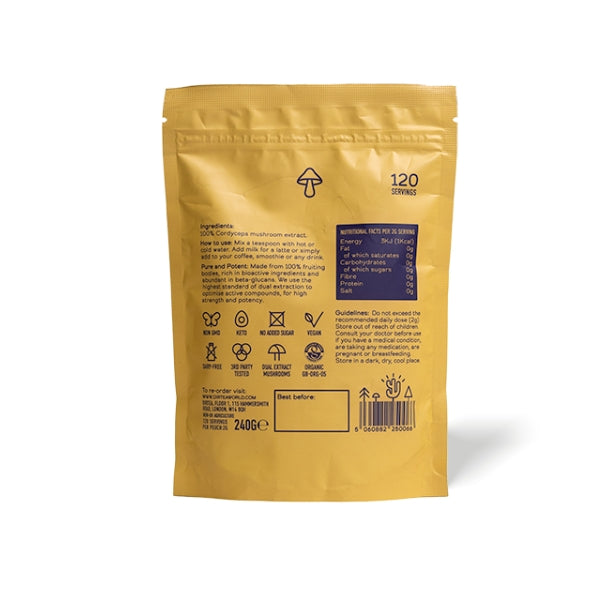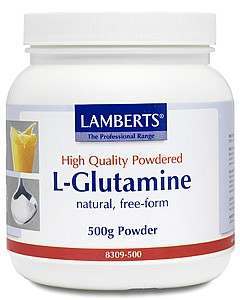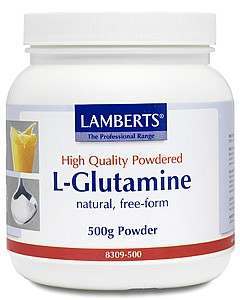Lamberts L Glutamine Powder 500g
Lamberts L Glutamine Powder is an easy and affordable way to supplement the diet with amino acid in a mild tasting pure powder that can be easily mixed with Drinks & Beverages or sprinkled on your favourite Food.
- 500g.
- Maintains a healthy gut.
- Often used in sports recovery.
- Suitable for vegans & vegetarians.
- Mild tasting pure powder, easily mixed with drinks or sprinkled on food.
- An easy and affordable way to supplement the diet with doses of 5g and over.
Also available:
Lamberts L-Glutamine 500mg 90 Capsules.
What does Glutamine do?
Glutamine is particularly important for the health of the gut with the cells of the gut lining obtaining much of their growth material through ultilising glutamine as a fuel. This is why, out of the 20 amino acids, glutamine, is often referred to as the 'gut restorer'. It is also used to build proteins, which are essential for the formation of cells.
Glutamine is often used for sports recovery since large quantities of glutamine are stored in the body's muscles where it plays an important role in repairing and building new muscle. Heavy training can deplete our glutamine stores so a supplement may help speed recovery.
What is Glutamine?
Glutamine is the most abundant naturally occurring non-essential amino acid in the body and is one of the 20 Amino Acids encoded by the standard genetic code. It is not recognized as an essential amino acid, but is becoming conditionally essential in intensive athletic training or certain gastrointestinal disorders. In the Body, glutamine is found circulating in the blood and stored in the skeletal muscles. It becomes conditionally essential to the body (requiring intake from food or supplements), when a indvidual develops illness or injury.
Glutamine is synthesized by the enzyme glutamine synthetase from glutamate and ammonia. Accounting for about 90% of all glutamine synthesized, muscle mass is the most relevant glutamine-producing tissue. Glutamine is also released, in small amounts, by the lung and the Brain.
Glutamine is also known to assist in operations, reducing the healing time upon completion of the procedure. Clinical trials have show that patients on glutamine supplementations have improved nitrogen balances and also improved lymphocyte recovery and intestinal permeability (in postoperative patients), in comparison to those that had no glutamine within their diet.
Directions of Use
Serving Guide:
1 heaped teaspoon = 5g.
Recommended Daily Intake:
5g. Take 5g of Lamberts L-Glutamine Powder and mix into water or fruit juice, at least half an hour away from food, or at bedtime, or as directed by a practitioner or pharmacist.
Caution:
- Keep away from children.
- Do not take if pregnant or breast feeding.
- Do not exceed the recommended daily dose.
- Packed in a factory that handles nuts, soy, eggs and wheat.
Storage:
Lamberts L-Glutamine Powder should be stored in a cool dry place and protected from light.
Ingredients
Soluble fine white powder.
L-Glutamine 5g Calories 20kcal.
L-Glutamine 100g Calories 400kcal.






